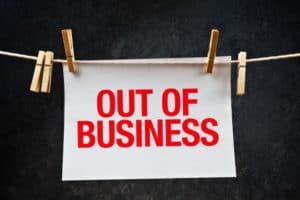 Many entrepreneurs would probably rather look back at their successes than their failures, but Jilea Hemmings wants others to learn from her mistakes.
Many entrepreneurs would probably rather look back at their successes than their failures, but Jilea Hemmings wants others to learn from her mistakes.
Hemmings and her husband Jamie were the creators of Greenie Tots — frozen meatless entrees aimed at children. The Plantation, FL, couple started out selling the healthy meals at local farmer’s markets in 2009, and later branched out into frozen versions.
The meals wound up being a huge success, and although the couple didn’t quit their day jobs right away — they worked by day in the pharmacy and health insurance industries, respectively — the product was selling well.
“We had a niche,” Jilea Hemmings explained to the Sun Sentinel. “The product was in high demand, but [we] couldn’t keep up with it.”
By that point, Greenie Tots was featured in grocery stores in Florida and other states. Whole Foods was among the first to pick it up, first in Florida and then in New York and California; Publix Greenwise also sold the entrees.
Hemmings, 35, said that at the height of production volume, the company was making about $100,000 in sales.
The Hemmingses had the chance to appear on the CNBC show “Shark Tank,” where they would compete to meet with investors and receive backing for their business. But another investor and family friend had said he’d back the couple financially to help them expand.
That investor, however, took off to Brazil, never to be seen again. And the couple didn’t get a second chance from “Shark Tank.”
By early 2015, the couple shut down Greenie Tots — after already clearing out their 401(k) accounts and sinking more than $250,000 into the business. Capital, Hemmings admitted, would have been “key” in their success.
Starting a business isn’t an easy task, no matter where one might be located in the United States. In fact, research shows that 30% of businesses that fail do so because they don’t have the managerial experience to succeed, and they are often at risk for having poor credit granting practices, borrowing inadequately, or expanding too quickly, as Hemmings admits her company did.
Black-owned businesses, like Greenie Tots, may also struggle due to the U.S. economy in general and, at times, a lack of lending opportunities. But businesses owned by African Americans are on the rise, according to entrepreneurial news source The American Genius.
Despite the recession in recent years, black-owned businesses rose by 2.3% between 2007 and 2012. Those businesses now represent 9.4% of all U.S. businesses.
Thumbtack’s annual small business survey reports that some of the best cities for black-owned businesses include West Palm Beach, FL, ranked number four; and Jacksonville, FL, coming in at number nine. Austin, TX, tops the list, though other cities like New York, Baltimore, Philadelphia, Oakland, and Chicago are also excellent areas for black entrepreneurs.
And it’s no wonder West Palm Beach, also in Broward County, appears on the list. Even in spots near the Hemmingses’ hometown, entrepreneurs are putting together a monthly marketplace for black-owned businesses in South Florida, according to the Broward Palm Beach New Times.
As for Hemmings today, she’s learned from her lesson and wants others to do the same.
“We did it so wrong and took it so far,” she said, mentioning that she and her husband had lost their home after shutting down Greenie Tots.
She now has a new business, Eshe Consulting, which she uses to work with startups. Her husband has used his experience running the health food company to work in food distribution sales.
Hemmings also wrote a book about her experience, titled “The Untold Truth About Building a Startup” and spoke at Broward College’s Innovation Hub earlier this month.
Although she still credits the experience as a success in some respects, she said that a startup “really tests what kind of leader you are, how much tenacity you have when it doesn’t work out” — advice she hopes other entrepreneurs will take.

